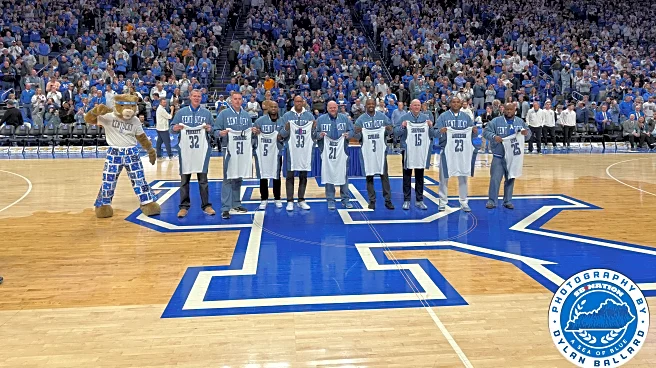What is the story about?
What's Happening?
The U.S. hotel industry experienced a significant decline in revenue per available room (RevPAR) for the week ending September 27, 2025, primarily due to the calendar shift of Rosh Hashanah. This decline was marked by a 6.6% drop in RevPAR, driven by a 2.8 percentage point decrease in occupancy and a 2.5% reduction in average daily rates (ADR). The observance of Rosh Hashanah, which began on a Monday, led to the largest RevPAR decreases on Monday and Tuesday, with declines of 12.4% and 11.4%, respectively. Despite a slight improvement in ADR over the weekend, it was insufficient to counterbalance the week's overall losses. The Top 25 Markets in the U.S. saw the most significant impact, with weekly RevPAR falling by 11.3%, largely due to a slowdown in business and group travel during the observance.
Why It's Important?
The decline in RevPAR highlights the sensitivity of the U.S. hotel industry to calendar shifts and holiday observances. The impact of Rosh Hashanah, despite not coinciding with an economic recession, underscores the challenges faced by the industry in maintaining occupancy and revenue levels during such periods. The drop in group demand, particularly in luxury and upper upscale hotels, indicates potential vulnerabilities in business travel and group events, which are crucial for the industry's recovery post-pandemic. The broader implications suggest that the industry must adapt to fluctuating travel patterns and economic conditions to sustain growth.
What's Next?
Looking forward, the U.S. hotel industry anticipates a better performance in October, as it is free from major calendar shifts and conducive to group and business travel. The industry's recovery will depend on various factors, including economic conditions and travel demand. Stakeholders may need to strategize on attracting more business and leisure travelers to offset potential declines during holiday observances.
Beyond the Headlines
The occurrence of Rosh Hashanah starting on a Monday is rare, having happened only four times since 2000. This year's RevPAR results were comparable to those during the Great Recession in 2008, highlighting the profound impact of calendar shifts on the industry. Despite the challenges, the absolute demand for travel during this period was the fourth-highest since 2000, indicating a robust interest in travel that could be leveraged for future growth.
















